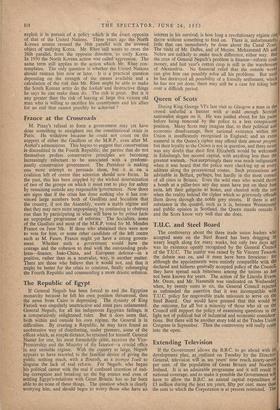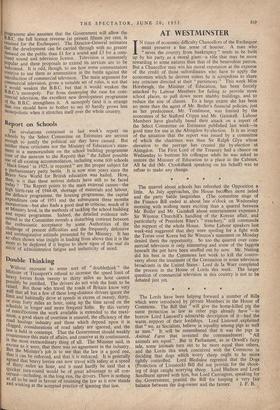Extending Television
If the Government allows the B.B.C. to go ahead with its development plan, as ,outlined on Tuesday by the Director' General, television will in ten years' time reach ninety-seveg per cent. of the population of Great Britain and Northern Ireland. It is an admirable programme and it will result is national coverage; and to make it possible the Government will have to allow the B.B.C. an annual capital expenditure of £3 million during the next ten years, fifty per cent. more than the sum to which the Corporation is at present restricted. The Bogramme also assumes that the Government will allow the B.C. the full licence revenue (at present fifteen per cent. is retained for the Exchequer). The Director-General estimates that the development can be carried through with no greater deniand on the public than £1 for a sound and £3 for a com- bined sound and television licence. Television is immensely Popular and these proposals to extend its services are to be welcomed. It is odd, though, to see how some commentators contrive to use them as ammunition in the battle against the introduction of commercial television. The main argument for Commercial television, given a suitable set of rules, is not that 1,1 would weaken the B.B.C. but that it would weaken the Is.B.C.'s monopoly. Far from destroying the case for com- mercial television, the excellent new development programme Of the B.B.C. strengthens it. A monopoly (and it is strange that one should have to bother to say it) hardly grows less monopolistic when it stretches itself over the whole country.



































 Previous page
Previous page